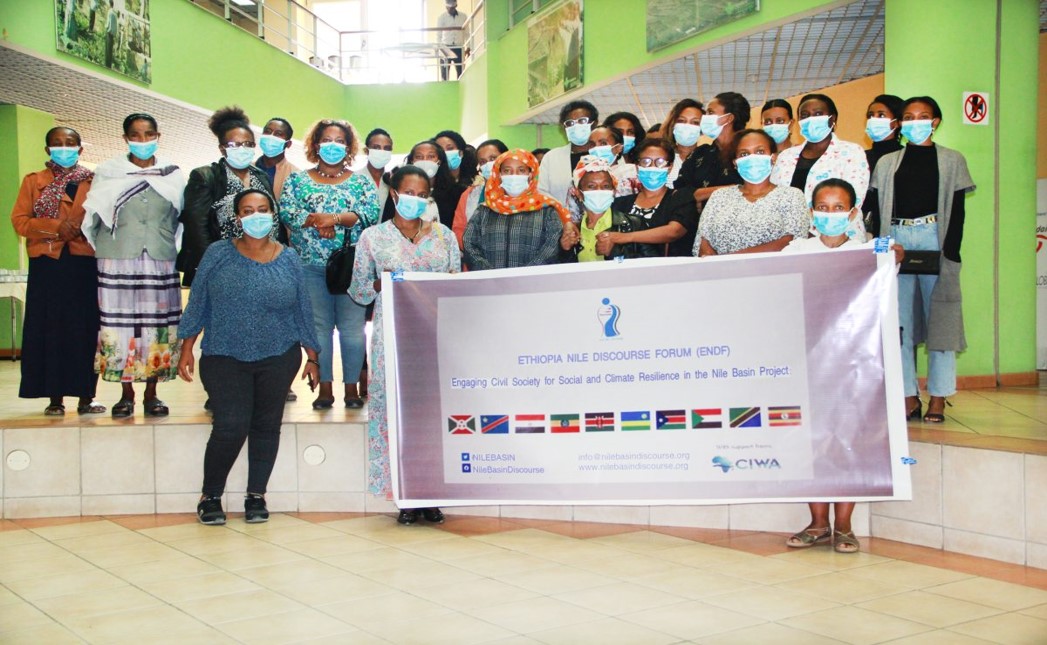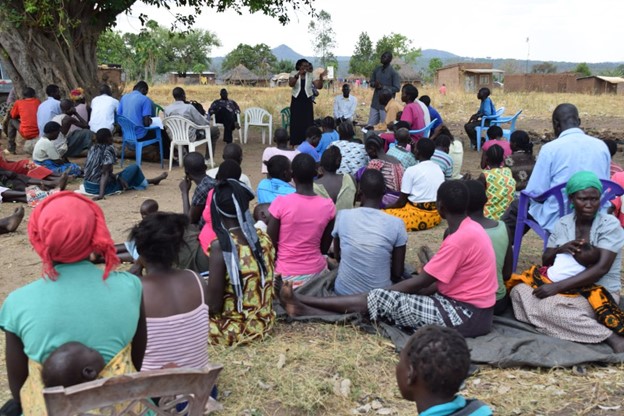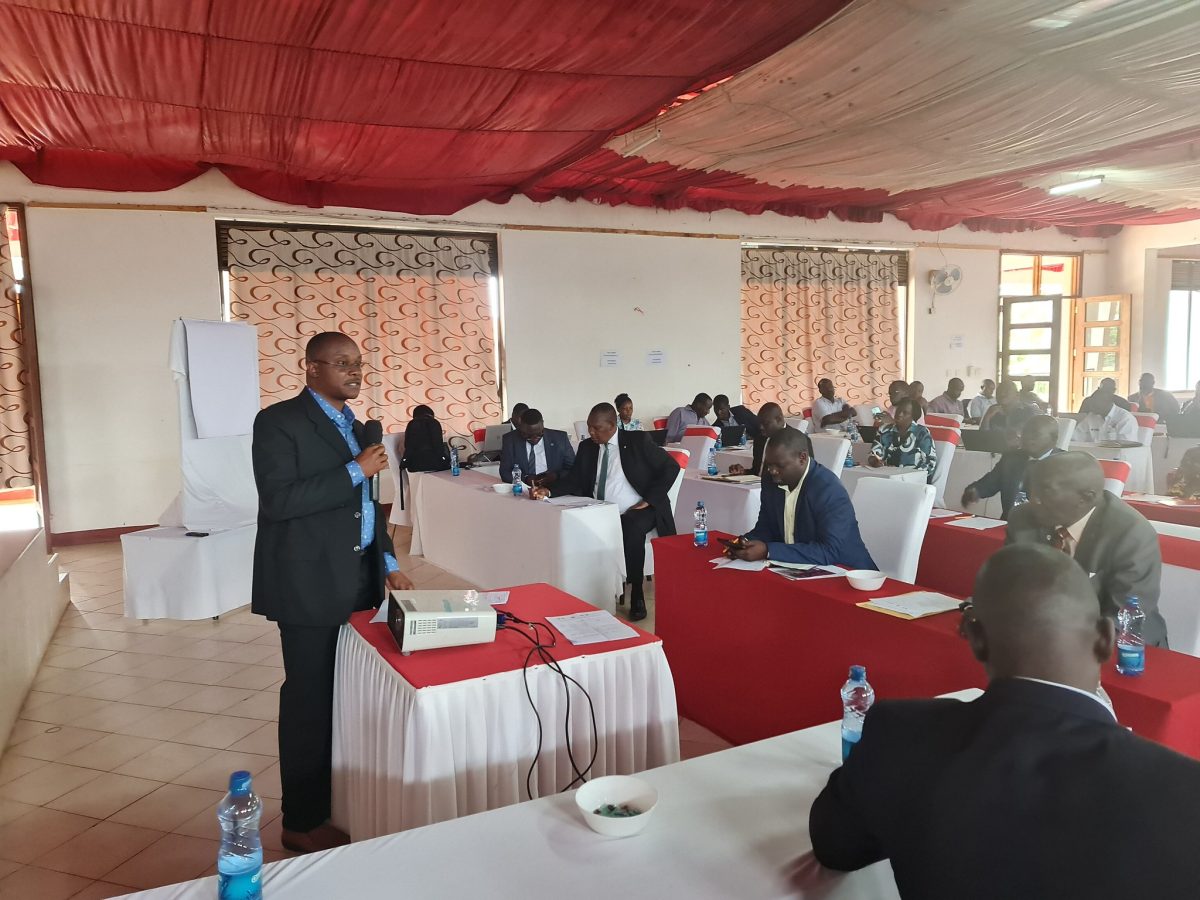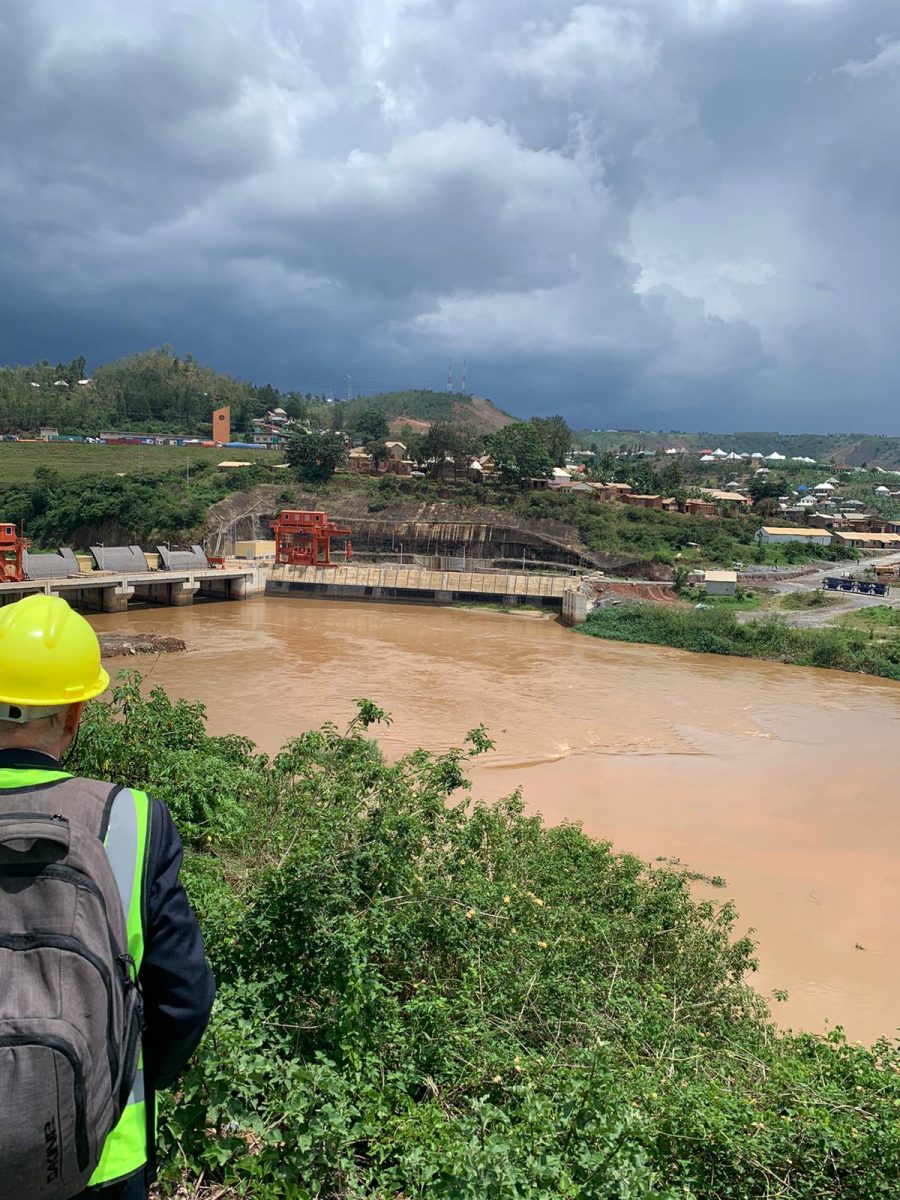A Transformative Approach for the Nile Basin: How CIWA Leaves its Mark
Posted in : Blog on 21 February 2023
The Cooperation in International Waters in Africa (CIWA)’s origin story has its roots in the Nile Basin. On February 22nd (Nile Day), to celebrate the Nile, the world’s longest river which underpins the livelihoods of more than 200 million people, read the testimonies of Donald Kasongi (former secretary-general for NBD- Nile Basin Discourse) and Isaak Alukwe (Regional Coordinator for NELSAP-CU – Nile Equatorial Lakes Subsidiary Action Program), in this new blog from the “A View from the Field”’ series.
East Africa faces a multitude of challenges, including food and water insecurity, growing fragile and conflict situation, and climate change impacts. The Cooperation in International Waters in Africa (CIWA), grew out of the progress made by the Nile Basin Trust Fund in water resources management and development in the Nile River Basin. Today, it is now working on a larger scale to enhance the region’s resilience to worsening climate change and water insecurity, elevating the voices of civil society in decisions about water resources, and providing opportunities for riparian dialogue and hydro-diplomacy.
The Nile Basin’s Pioneering Approach to Gender and Social Inclusion (GESI)
The Nile Basin is one of the most challenging places in the world to advance gender equality. Patriarchal beliefs, including stereotypes that women can’t understand technical issues, and male resistance to sharing power, often give women little to no voice in decision-making processes around water resources, even though water is critical to their livelihoods and families.

November 2021 – Ethiopia – Women training on Green Jobs and enterprise. Credit: Nile Basin Discourse
Women need to work together “to make decisions about how much water is needed, where to get the water, and how to organize themselves to extract water from a riverbed,” says Donald Kasongi, former Secretary General and now chair of Nile Basin Discourse (NBD)’s Tanzanian chapter, which has been working with CIWA to transform gender relations in water resources management across the basin.
CIWA’s Gender and Social Inclusion (GESI) Framework recognizes that most approaches to addressing gender inequality, such as counting the number of women at meetings to demonstrate results, are inadequate to make lasting progress toward equality. Its GESI approach is about shifting mindsets and taking a holistic approach by addressing gender norms and roles; power and decision-making; access to, and control over, resources as well as the institutional barriers that exist to women’s full participation.
In the Nile Basin, Kasongi is doing just that.
While working on gender issues for 15 years, Kasongi says, he finds himself “digging deeper and deeper to understand social norms. It’s not about how many women are in the room; it’s about making sure that women are agents of themselves.”
He emphasizes that a one-size-fits-all approach to GESI won’t work in such a diverse region. While some eastern and central Nile countries are more open to reconsidering patriarchal norms and values, in countries where women are seen as property of the male heads of households, a different approach is required.

Tackling Water Security and Resilience in the Nile Basin
Water, food, and energy insecurity. Rapid population growth and urbanization. Political conflict and tension. These stresses are all exacerbated by climate change and affect many parts of the developing world, but nowhere more so than in the Nile Basin.

Just ask Isaac Alukwe, Regional Coordinator for the Nile Equatorial Lakes Subsidiary Action Program (NELSAP-CU), who works closely with the Nile Cooperation for Climate Resilience (NCCR) project. “Most climate change models agree that surface temperatures will rise in the Nile Equatorial Lakes region, which will translate into more demand for water,” he says, “Water shortages will be a key constraint in the coming decades to realize both food and energy security and fulfill countries’ development plans.”
What’s more, he says, “critical ecosystems, habitats, and biodiversity assets of world significance will be at risk, if not extinct, if countries do not intervene on time.” And while countries must collaborate to secure water resources and safeguard the environment, Alukwe adds, “politics, tensions, and suspicions among Nile Basin states,” not to mention armed conflict in Ethiopia and Sudan, are an impediment to cooperation.
This is why activities under the NCCR project, launched in 2021, is so critical for enhancing the region’s water security.
“NCCR is promoting and building trust, confidence, and interaction among countries through joint capacity building,” he says.
The project supports regional capacity-building training to build skills and enhance collaboration and encourages dialogue. For example, when an upstream country experiences heavy rainfall, it will notify its downstream neighbor to expect flooding. Alukwe cites the positive outcomes that arose when CIWA (and its predecessor, the Nile Basin Trust Fund) brought together Burundi, Rwanda and Tanzania, enhanced cooperation between them and overcame tensions to develop the Regional Rusumo Falls Hydroelectric Project. CIWA’s former NCORE project contributed to the implementation of the investment, which is nearing completion.

Despite the region’s challenges, Alukwe is optimistic about the opportunities that will emerge from NCCR’s efforts to promote more dialogue and cooperation.
“Areas of opportunity for cooperation that will allow Nile Basin states to reach favorable development outcomes for all include management of the environment, watersheds, groundwater, wetlands, dams and dam safety issues; flood and drought forecasting and early warning; and climate change mitigation and adaptation,” he says. “If well planned, there are lots of win-win development opportunities with shared benefits at the transboundary level.”
NCCR, which is expected to lead to investments in subsequent years, is “a very important funding window supporting collaboration, which will also enhance country preparedness and resilience against shocks from climate change,” he says.
The bottom line for Alukwe is that CIWA’s efforts to spark transboundary cooperation “will contribute to stability, peace, and prosperity for all riparian countries.”
A day after the Nile celebrations on the 22nd of February, the annual event “Nile Basin Initiative Strategic Dialogue” will bring together representatives of NBI Partner States and of Development Partners to discuss the Nile cooperation, share briefs and lessons on the institutional and program progress. Since its first edition in 2006, the dialogue seeks to strengthen the Nile cooperation through exploring options of institutional sustainability. Stay tuned here to know more about the event.
Learn more
Blogs
PROTECTING LAKE VICTORIA FOR A GREEN, RESILIENT, AND INCLUSIVE FUTURE
WHAT DOES IT TAKE TO REDUCE FLOOD AND DROUGHT RISKS AND BUILD CLIMATE RESILIENCE IN EASTERN AFRICA?
THE NEXT GENERATION OF WATER PROFESSIONALS WORKING TOWARDS A NEW ERA OF COOPERATION
Videos and Podcasts
ACROSS THE POND PODCAST: A CONVERSATION WITH ANDERS JAGERSKOG ON NCCR
TRAINING STUDENTS SHARE THEIR EXPERIENCE OF THE CIWA-FUNDED ENTRO PROGRAM
ETHIOPIA BISRAT: A WATER RESOURCES ENGINEER STORY
A NEW GENERATION OF WATER PROFESSIONALS AND LEADERS: THE EASTERN NILE YOUNG PROFESSIONALS PROGRAM
Publications
CIWA ANNIVERSARY REPORT: CIWA AT 10
THE NILE STORY: 15 YEARS OF NILE COOPERATION
LEARNING NOTE: GENDER EQUALITY AND SOCIAL INCLUSION IN NILE BASIN TRANSBOUNDARY WATER RESOURCES MANAGEMENT AND DEVELOPMENT GENDER AND SOCIAL INCLUSION FRAMEWORK
CLIMATE RESILIENCE IN AFRICA: THE ROLE OF COOPERATION AROUND TRANSBOUNDARY WATERS

